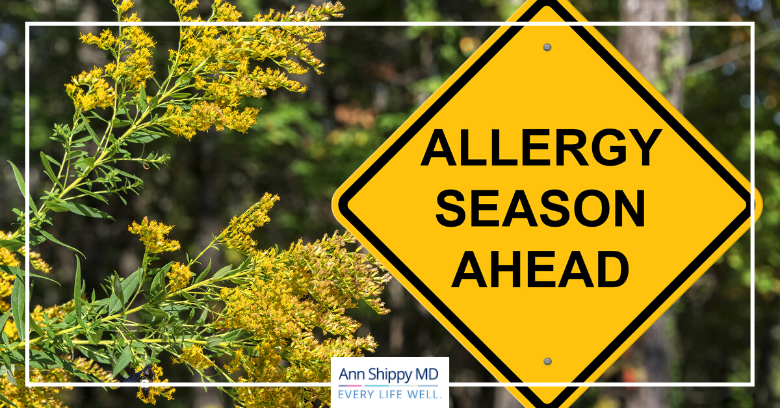Cedar fever has arrived and local news is reporting it as “the most dreaded allergen in Central Texas.”
That’s because mountain cedar trees are the most allergenic tree in the region. It’s also the only tree that pollinates well into winter.
Allergies get triggered when the immune system identifies an otherwise harmless particle, like dust, dander or pollen, as a foreign enemy trying to attack the body and sends out an aggressive response to fight it off. In its hyperactive state, the immune system’s response can get confused about what to attack and it begins attacking the body. Some people have more hyperactive immune systems than others to allergens. That’s why allergies vary from person to person.
With an allergen like cedar fever you get typical allergy symptoms like a dry, sore or scratchy throat, watery eyes, nasal congestion, sneezing, a runny nose, coughing and wheezing. (Note that cedar fever doesn’t actually produce a fever.)
When there’s prolonged allergy exposure, there’s a greater risk for prevalence of respiratory diseases. A study published in World Allergy Organization Journal found that adults with prolonged exposure to allergens experienced an increase in asthma attacks during a four-year period.
Life becomes tough for people with chronic allergies because, if left untreated, allergies can get worse over time. They can trigger sinus infections, ear infections, colds and weaken the immune system. A weak immune system can leave you susceptible to infections.
Untreated symptoms can also create sleep disorders and more serious respiratory problems like chronic lung inflammation and throw your body completely off balance. A study published in Nature found that prolonged allergy exposure “produces long-term changes in the structure of the affected organs and substantial abnormalities in their function.” Pollination from mountain cedar trees usually lasts through March, which means cedar fever will be around for a while.
If you are prone to allergic reactions it’s wise to take measure to protect your health.
Allergy symptoms like nose and chest congestion are common types of inflammatory response. Consume foods that fight inflammation and are in the family of monounsaturated fatty acids (MUFAs) such as leafy greens, nuts, olive oil and fatty fish. Foods that are typical of the Western diet such as fried foods, refined carbs, sodas and processed meats worsen inflammation.
Avoid animal dairy, specifically, milk, yogurt, cream, cheese, butter, ghee. These foods can thicken phlegm and irritate a sore throat even more. I also see improvement with a gluten free diet.
Fruits high on the antioxidant range help your immune system stay strong, like berries, pomegranate seeds and oranges. Supplements that support your immune system, reduce histamines and fight off inflammation are included in the Cedar Fever Kit. I recommend this combination of supplements to help alleviate cedar allergy symptoms. These supplements also don’t have the unwanted side effects from most over-the-counter allergy medications. Stay hydrated with water to keep mucus and phlegm loose, and hot tea to soothe your throat. Nasal irrigation (like Neil Med Saline Sinus Rinses or a Neti-Pot) also helps flush out congested noses and get rid of bacteria and irritants from nasal passages.
Do things that lower your exposure to pollen. Do you have cedar trees around the perimeter of your home? Maybe it’s time to cut them down and replace them with non-pollinating trees.
Another way to lower pollen in your home is to keep your windows and doors shut. Run the air conditioner instead. Dust often, change your clothes when you get home, especially if you’ve been outdoors for a long time. Remove your shoes before entering and get an air filter to run constantly inside your house. For more information on how to purchase the Cedar Fever Kit, click the link below.
SOURCES:
http://www.kvue.com/weather/dont-shoot-the-messenger-cedar-has-arrived-to-austin/499193356














